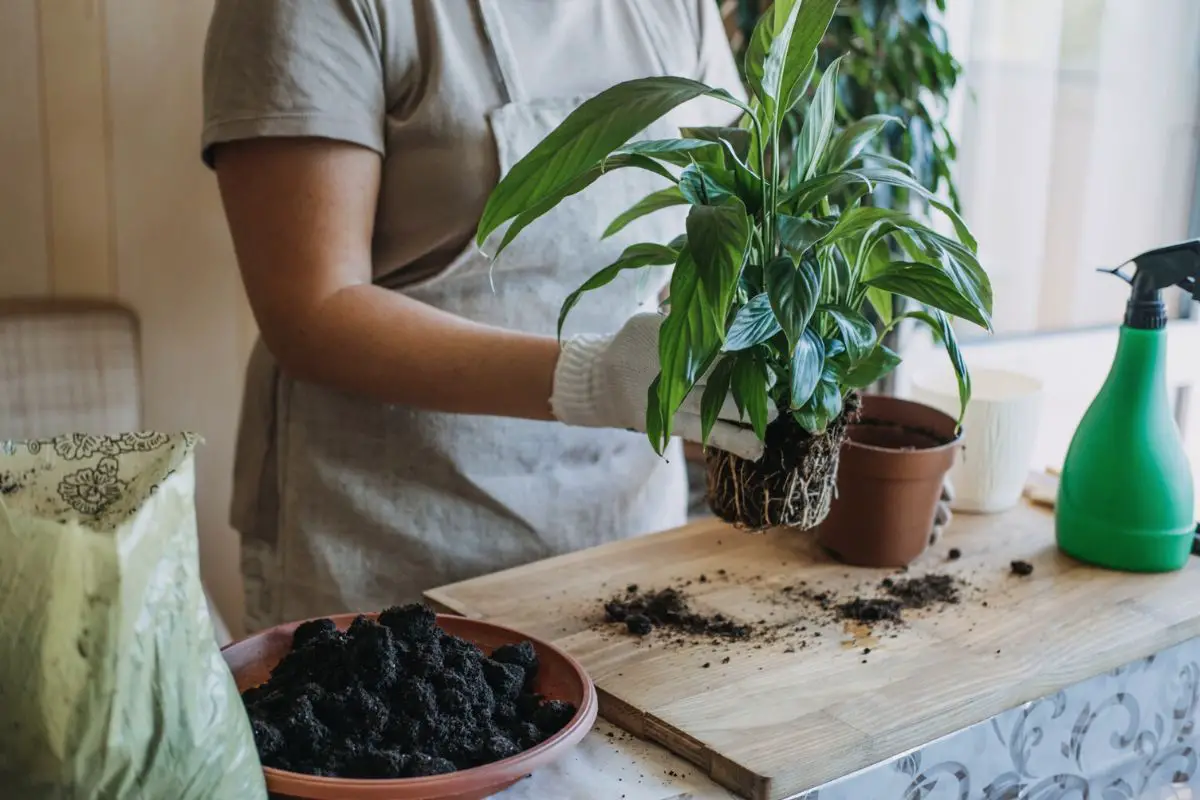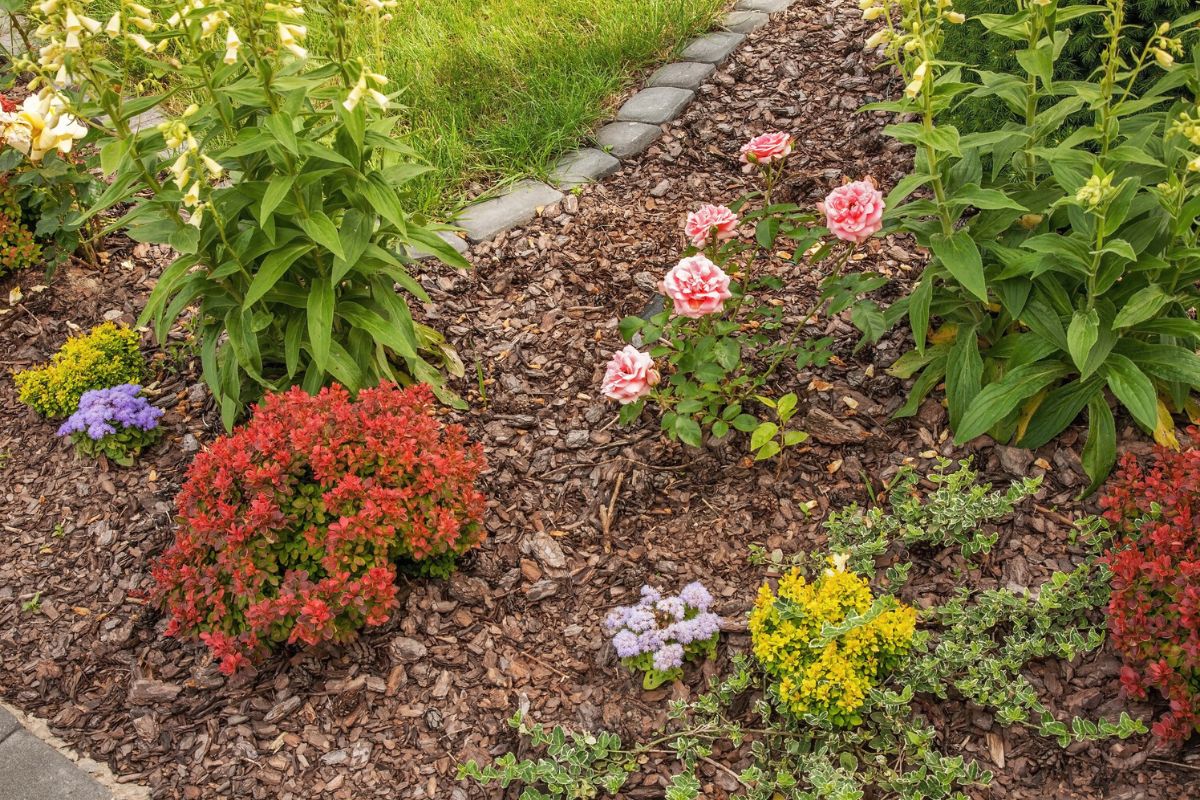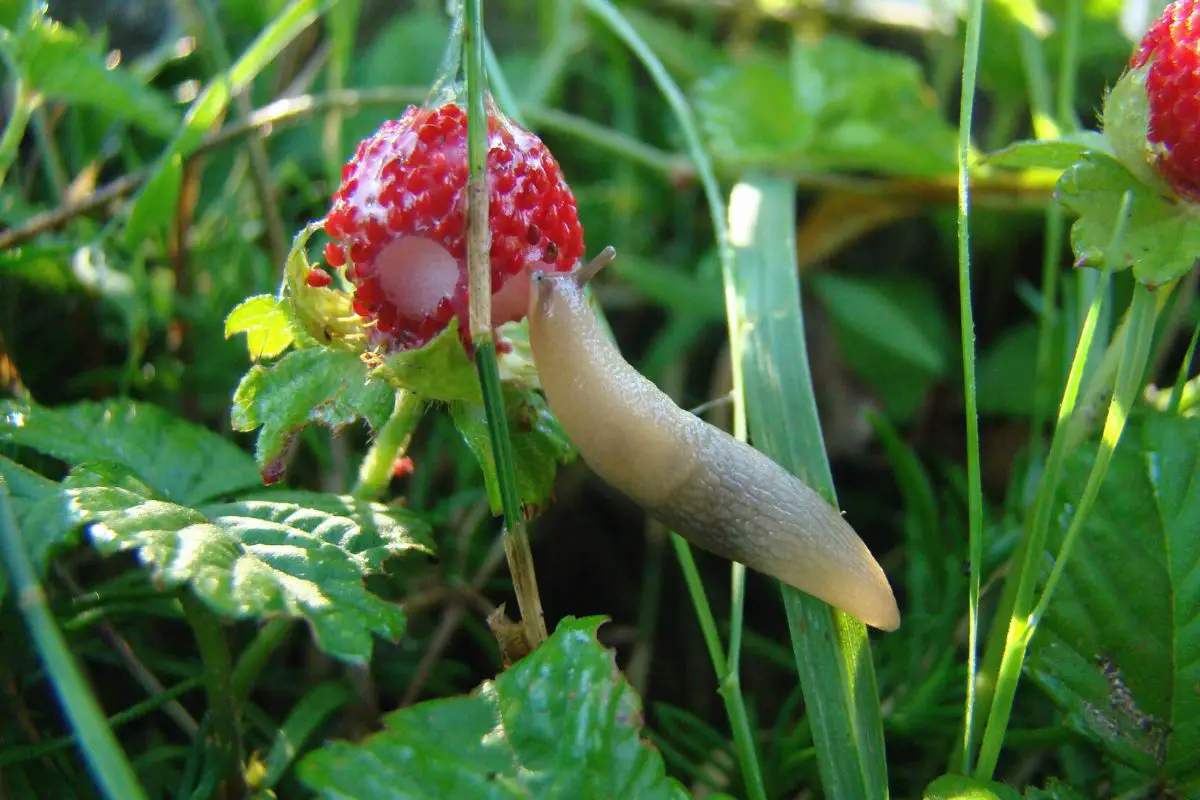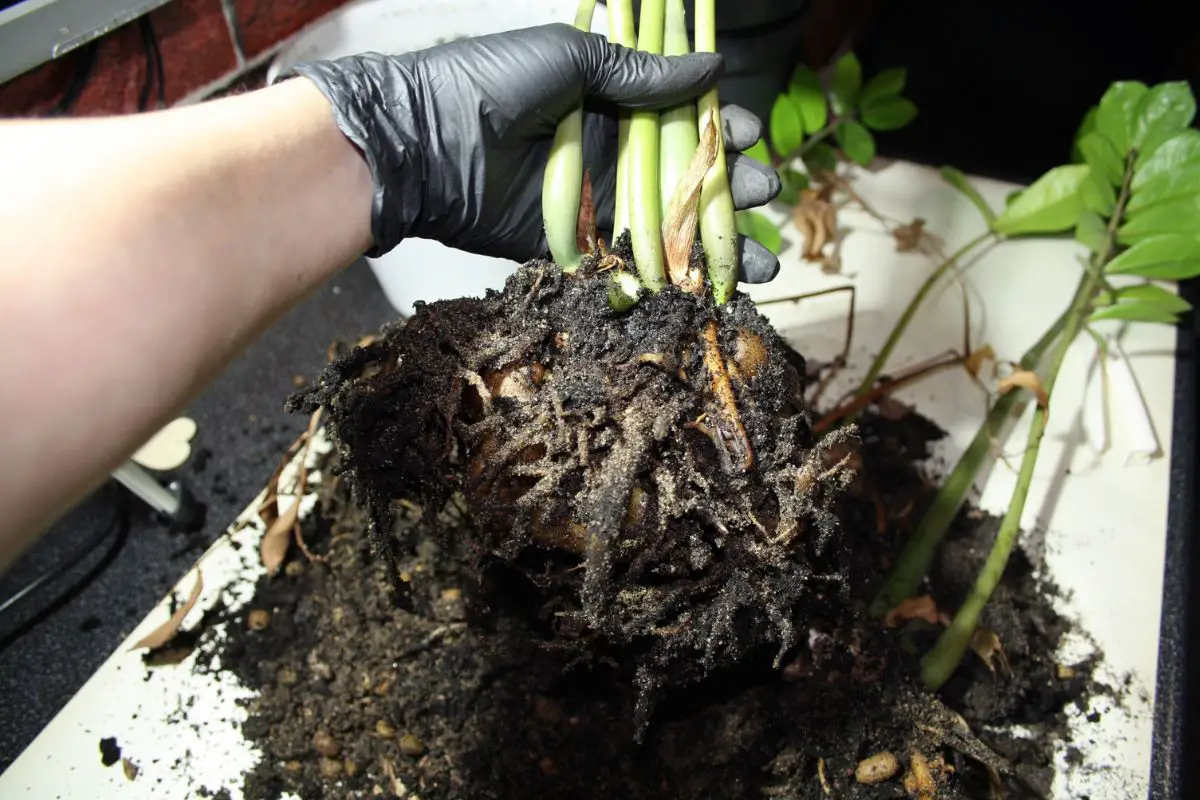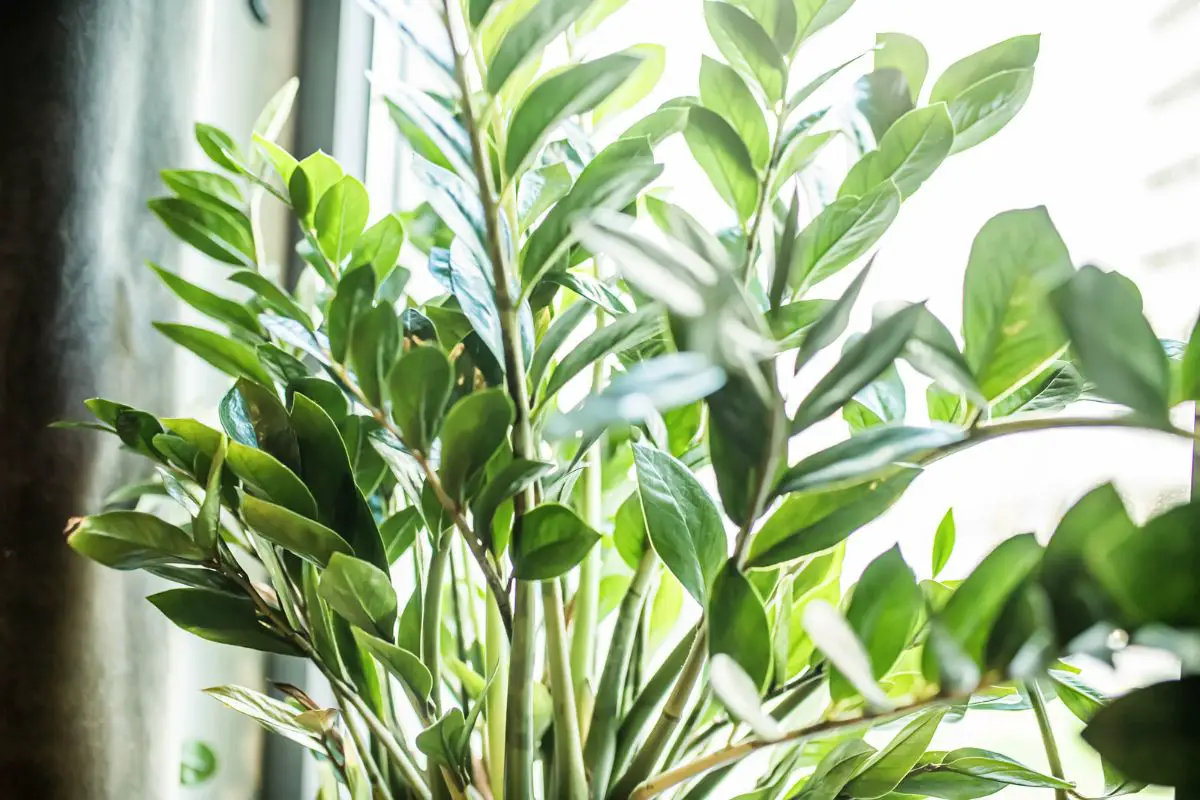Daisies belong to the family Asteraceae whose members have composite flowers. They make excellent cut flowers for vases or garden ornamentals due to their striking blooms. There are over a thousand genera under this family, but they share similar care requirements.
Daisies thrive in moist and well-drained soils in an area where they can receive at least 6 hours of direct sunlight daily. They grow best at temperatures between 65 and 80 °F (18 and 27 °C). They can be grown as annuals in zones 4-8 or as short-lived perennials in zones 9-11.
There are numerous daisy varieties, but this article will focus on those that are commonly grown in the US, including the English, Shasta, ox-eye, Gerber, African, and painted daisies. I’ll share tried-and-tested tips on how to successfully grow them in your home garden.

Quick Guide
| Common Name(s) | Daisy |
| Botanical Name | Bellis spp. (English daisies) Leucanthemum spp. (Shasta or Ox-eye daisies) Gerbera spp. (Gerber daisies) Arctotis spp. (African daisies) Tanacetum spp. (Painted daisies) |
| Family | Asteraceae |
| Plant Type | Herbaceous perennial (flower) |
| Native Area | Asia, Africa, Europe |
| USDA Hardiness Zones | Annual in zones 4-8 Tender biennial or short-lived perennial in zones 9-11 |
| Height & Spread | 0.5-4 feet (15-120 cm) tall 1-2 feet (30-60 cm) wide |
| Bloom Time | Spring and/or summer |
| Flower Structure | Composite (with a central disk and rays of petals) |
| Color | White, yellow, red, pink, purple, blue |
| Sun Exposure | Full sun (at least 6 hours of direct sunlight) Partial shade from the afternoon sun |
| Soil Type | Moist and well-drained (loamy sand) Rich in organic matter |
| Soil pH | 6.0-8.0 |
| Watering | Moderate An inch of water weekly for in-ground plants As soon as the upper 1-2 inches (2.5-5 cm) of the soil is dry for potted plants |
| Pests, Diseases, Common Problems | Aphids, whiteflies, spider mites, slugs, earwigs, rabbit, deer Root or crown rot, blight, powdery mildew Some species are naturally resistant to pests and fungal diseases due to pyrethrins (i.e., painted daisies) |
| Toxicity | Toxic to cats and dogs (except for Gerbera daisies) Ingestion of leaves can lead to confusion, loss of appetite, vomiting, diarrhea, or muscle spasms Contact with sap may cause dermatitis |
Daisies: An Overview
Daisies are native to regions with mild summers and winters. That’s why they’re popularly grown as annuals in the US.
In warm, frost-free regions, these herbaceous perennials can live for 2-3 years in the outdoor garden. They may persist longer in the garden, but the flowers will be sparse as they get older.
Flower Anatomy and Nyctinastic Behaviors
Daisies are popular for their composite flower pattern where the central disk contains about a hundred small florets and is surrounded by a single or multiple layers of ray petals. Each floret in the central disk contains one pistil with a stigma on top splitting into a Y shape.
Each flower grows on a stalk 2-15 inches (5-38 cm) long. The stems and stalks of daisy flowers don’t have thorns. This makes them perfect as cut flowers for vases and bouquets.
As sun-loving plants, some daisy species exhibit nyctinastic behaviors in their blooms.
This manifests in the following responses to light:
- The ray florets open at sunrise and close at night. This behavior is also sometimes associated with the plant’s defense mechanism. It’s commonly found in African daisies whose flowers have a greenish coloration underneath the petals. Closing the flowers protects them from herbivores at night.
- The flowers move their heads to follow the sun’s direction during the day. You may notice the flower heads facing east in the morning and looking upward at midday.
Daisy flowers can vary in color depending on the species. Hybrids from the same species may also have different colors due to multiple factors, such as mutation, soil pH, and temperature.
Although most ray florets have solid colors, you may come across daisies with pink tips or striped florets due to the factors mentioned.

Here’s a brief guide on the traits of the most common varieties grown in the US:
| Variety | Size (Height & Spread) | Color | Flower Size (diameter) | Bloom Time |
| English daisy (B. perennis) | 0.5-1 foot (15-30 cm) tall and wide | Yellow center and white rays Some may have pink-tipped or entirely pink rays. | 1 inch (2.5 cm) for classic 3-5 inches (7.5-13 cm) for larger cultivars | Spring and summer |
| Shasta daisy (L. superbum) | 1-4 feet (30-120 cm) tall 1-2 feet (30-60 cm) wide | Yellow center and white rays | 2-5 inches (5-13 cm) | Spring and summer |
| Gerber daisy (G. jamesonii) | 0.5-1.5 feet (15-45 cm) tall 1 foot (30 cm) wide | White, yellow, pink, orange, red Some have bi-colored rays. | 3-4 inches (7.5-10 cm) | Spring to autumn |
| Ox-eye daisy (L. vulgare) | 1-3 feet (30-90 cm) tall 1 foot (30 cm) wide | Yellow center and white rays | 0.5-1 inch (1.3-2.5 cm) | Late spring to summer |
| African daisy (Arctotis hybrida) | 1-2 feet (30-60 cm) tall 1 foot (30 cm) wide | White, yellow, pink, orange, red | 1-3 inches (2.5-7.5 cm) | Summer and fall |
| Painted daisy (T. coccineum) | 2-3 feet (60-90 cm) tall 1-1.5 feet (30-45 cm) wide | Mostly with yellow center Red, magenta, white, or pink rays | 1-3 inches (2.5-7.5 cm) | Summer |
Symbolism and Cultural Use
The classic white daisy with a yellow center is a symbol of purity and innocence.
Historically, the English daisy was popular among children and young ladies. They used it to make daisy chains or pick on the petals for the age-old game of “he loves me, he loves me not.”
Modern daisies and the wide selection of flower colors have changed their meaning and cultural use.
Here are the symbolisms and applications associated with different daisy colors:
- Pink: Friendship, romance, feminine energy. Lighter shades are best used for friendly or sisterly relations. Darker shades like magenta often hint at romantic intentions.
- Red: Romantic love. Red daisies are a low-cost alternative to roses for bridal bouquets.
- Yellow: Friendship, happiness, well-wishes. Yellow daisies are pleasant congratulatory or get-well-soon gifts for mothers, sisters, or female friends.
- Orange: Happiness. They’re perfect for cheering up female acquaintances.
In addition to all the positive energies and messages behind daisy flowers, you’ll be surprised how easy they are to grow and maintain.

Preparing to Plant Daisies
Proper planning and vision are necessary when growing daisies in your garden. You may have some flexibility when growing them in pots because you can move them around.
However, daisies established in flower beds don’t like being transplanted. Although they’ll survive the transfer, they will likely have fewer blooms.
So here are some things to keep in mind when preparing for growing daisies:
Selecting the Right Location
You have to consider the soil type and light intensity when choosing the right location.
Soil Type
Daisies can grow in different types of soil with a wide pH range (6.0-8.0) as long as there’s good drainage.
However, I’ve noticed that they tend to do best in loamy sand with an almost neutral pH (6.5-7.0) because it has good drainage, moisture retention, and nutrient accessibility.
African daisies from arid regions will do well in sandy soil because they’re more drought-tolerant. Either way, your plant needs a substrate that’s rich in organic matter to promote flower growth.
Light Intensity
Daisies like at least 6 hours of direct sunlight daily to produce and open flower buds. However, too much sunlight (accompanied by dry conditions) can cause dehydration and sunburn.
Choose an east-facing garden to give your daisies gentle morning light. This will also encourage the flowers to open in the morning, especially the nyctinastic English and African varieties.
If you have a western or southern garden, you can install a shade cover over your flower bed at midday. Avoid a northern garden because it receives the least amount of daylight. Your daisies will be less likely to produce flower buds in such an area.
Soil Preparation
After choosing the planting location, your soil may require some amendments.
Here are some tips:
Soil Texture
To strike a perfect balance between drainage and moisture retention, you must amend the soil accordingly.
- Loose soil: Work 2-3 inches (5-7.6 cm) of compost into the upper 6-8 inches (15-20 cm) of soil to improve moisture retention and add organic matter.
- Clayey soil: Wait until the soil is partially dry before working 2-3 inches (5-7.6 cm) of coarse sand evenly into the upper 6-8 inches (15-20 cm). You can add compost as mulch later to improve water infiltration.
- Pots: I recommend a potting mix containing equal parts coarse sand/perlite, compost, and coco peat.
Nutrient Requirements
As flowering plants, daisies need phosphorus-rich fertilizers to encourage bud formation and blooming.
You can amend the soil accordingly depending on its properties:
- Poor soil: Work a slow-release 10-10-10 NPK fertilizer or finished compost into the upper 6-8 inches (15-20 cm) of the soil. You can do this 1-2 weeks before planting as you till and weed the soil before planting.
- Average soil or pots: Sprinkle bone meal powder over the soil surface and rake it in about a week before planting.
Soil pH
Although daisies can thrive in a wide range of pH, they can suffer from iron or manganese deficiency when grown in alkaline soil (pH over 7.5). That’s why the optimum pH range is 6.5-7.0.
Use lime to raise the soil pH or elemental sulfur to lower it. If your soil pH needs amending, I recommend doing it in the fall because it can take a few months before these substances can alter the soil pH.
Best Time for Planting
The best time to plant daisies is in spring when soil temperatures are steadily above 60 °F (15.6 °C). The seeds will not sprout at lower temperatures.
Planting them late in the season will lead to a lack of blooms in the first year. The high summer temperatures will halt bud formation and the cold autumn temperatures will slow down growth. The first batch of blooms will then come out in the spring of next year.
If you live in a cold region (USDA zones 4-8) and want to grow daisies as annuals, I recommend starting your seeds indoors 4-6 weeks before the last spring frost.
This will help ensure your plant bears flowers by early summer. If you have mild summers, you may even enjoy the blooms well into the early fall.
Planting
You can start daisies from seeds or seedlings.
Here’s a step-by-step guide for the following methods:
Starting Seeds
You can do this indoors using a 3 or 5-gallon (11.4-19 l) pot per plant. Daisies reach maturity within 2-3 months and don’t require frequent repotting, so choose a pot that will accommodate its mature size. More importantly, it should have drainage holes.
For direct sowing into the garden soil or flower bed, you can refer to the steps below.
- Rake the soil surface and sprinkle the seeds over it. Alternatively, you can poke holes ⅛ inch (3.2 mm) deep and 6 inches (15 cm) apart. You can then sow two seeds in each hole.
- Lightly cover the seeds with about ⅛ inches (3.2 mm) of soil to allow access to sunlight.
- Water them using the fine mist of a garden hose or watering can to avoid dislodging the seeds. Do this early in the morning, ensuring that the soil is moist at least 3 inches (7.5 cm) deep.
- Check the soil regularly to keep the upper inch (2.5 cm) moist. You may need to water every 1-2 days. The seeds will germinate within 10-20 days with enough moisture.
- After about 6-8 weeks, thin the seedlings by spacing them 1-2 feet (30-60 cm) apart depending on the plant’s expected spread.
Planting Seedlings
If you live in a cold region and start the seeds indoors, you can transplant the seedlings into the ground after the last frost.
Follow these steps:
- Soak the rootball in water for about one minute to loosen and remove the potting mix.
- Dig a hole in the ground to accommodate the rootball. It should be as deep as the rootball and about 4-6 inches (10-15 cm) wider.
- When transplanting multiple seedlings, keep the holes 1-2 feet (30-60 cm) apart.
- Place the roots into the hole, ensuring the crown is in line with the ground’s surface level.
- Spread the roots and fill the hole back in with soil.
- Carefully but firmly tamp the soil to remove air pockets and keep the plant upright.
- Water the plant deeply.
- Apply 1-2 inches (2.5-5 cm) of organic mulch. As perennials, daisies can benefit from long-lasting mulch materials like bark or wood chips. However, when grown as annuals, you can use compost or sawdust. Keep the mulch about an inch (2.5 cm) away from the base of the stem to prevent crown rot.

Watering Needs
As the plant becomes established (at least 6 inches or 15 cm tall), you can reduce the watering frequency and increase the watering amount.
Here are some practical tips:
- On average, a full-grown daisy plant needs an inch (2.5 cm) of water weekly. That’s enough to moisten the ground 6-8 inches (15-20 cm) deep.
- Seasonal and environmental changes can affect how much water your plant consumes and how fast the soil dries out. A good practice is to water the plant when the soil is dry 1-2 inches (2.5-5 cm) deep.
- Replenish the mulch as soon as it loses volume to ensure your plant remains well-hydrated.
- Water your plant early in the morning.
- Avoid overhead watering to prevent problems with pests or diseases. Water the soil directly.
Sunlight, Temperature, and Humidity
Daisies may not grow as well in US climates with extreme winters and summers.
To ensure your plant grows well and produces abundant flowers, remember the following parameters and tips:
- Sunlight: Give your plant at least 6 hours of unobstructed morning light. If your garden receives scorching midday sun, install shade covers that you can unfurl during the hottest part of the day.
- Temperature: Daisies thrive when temperatures remain between 65 and 80 °F (18 and 27 °C). During hot days, (over 90 °F or 32 °C), you can keep the shade cover on for most of the day.
- Humidity: Your plant likes moderate humidity levels between 30 and 50%. It can tolerate lower humidity if it’s well-watered. If it’s too humid out, just make sure you don’t wet the foliage or overwater your plant.
Fertilization
Daisies grown in rich or properly amended soil typically don’t need additional fertilizers in their first year. However, in the second year of growth, the soil may be depleted of nutrients.
Follow these tips for an abundant yield:
- Apply a thin but even layer of bone meal around the base of the plant at the start of the growing season in spring. Rake the organic fertilizer in and water your plant as usual.
- Feed your plant with half-strength 0-10-10 NPK liquid fertilizer every month during spring and summer.
- Go for products with micronutrients like iron, manganese, and zinc.
Pruning and Maintenance
Daisies can spread by reseeding. Pots are excellent in controlling invasive species like Shasta and ox-eye daisies, both belonging to the genus Leucanthemum. In-ground, these species can spread wildly when left unpruned.
Regular pruning is important if you don’t have enough garden space for new growths or simply want to prevent your plant from spreading. It also helps give your plant a bushier look or increase the number of blooms.
Remember the pruning and maintenance tips below for your plant’s optimum health and appearance.
Regular Deadheading
You can do this by pinching the neck of the fading flowers before they completely dry out. Alternatively, you can use sterile pruning shears. Removing the spent blooms will make way for the new buds to bloom after around 2-3 weeks.

Harvesting Cut Flowers
You can also collect flowers for vases and bouquets when they’re in full bloom.
To select the best flowers for display, follow these steps:
- Look for freshly blooming flowers whose stalks are at least 12 inches (30 cm) long.
- Make a diagonal cut (45°) close to the base.
- Remove any leaves from the bottom 4-6 inches (10-15 cm). This will be submerged in water.
- Place them in a sterile vase with filtered water.
- Replace the water every 3-4 days.
With proper care, cut daisies can last 1-2 weeks.
Fall Pruning
Fall pruning practices can vary depending on the climate in your area and whether you’re growing daisies as annuals or perennials.
Here are some guidelines:
- Annuals: Cut the plant back 1-2 inches (2.5-5 cm) to the ground after the first frost. This eliminates the dying foliage that pests might overwinter in.
- Perennials: Prune the plant in the fall by a third to half its size. This is a good opportunity to keep your plant in the shape you want. In frost-free regions, fall pruning may produce another flush of flowers.
Weeding
Daisies have shallow, fibrous roots, making them weak against perennial weeds with deeper roots and aggressive growth rates.
Applying around 2 inches (5 cm) of organic mulch around your plants should be enough to suppress weeds. However, it still helps to keep an eye out for weeds that may grow through the mulch layer and remove them from the roots as soon as you spot them.
These weeds might steal the soil nutrients and moisture intended for your daisies, resulting in sparse blooms.
Propagation
There are three ways to propagate daisies: through seeds, cuttings, and divisions.
Seed Propagation
When propagating through seeds, you simply have to wait until the flowers dry out on their stalks. You can then collect the seeds and store them in paper envelopes in a cool, dry, place. They will remain viable for 2-5 years.
You can plant the seeds in the spring following the steps discussed earlier.
Although this method is simple enough, one downside is there’s no guarantee the seeds will get the same traits as the mother plant. Daisies readily cross-pollinate with neighboring plants belonging to the same genus or species, producing a new variety.
Collecting and Planting Cuttings
Conversely, the advantage of propagating daisies from cuttings is that they will give you new plants identical to the mother plant.
The best time to collect cuttings is in the middle of spring when they’re actively growing or during the fall pruning so they have enough time to grow roots.
Here are the steps:
- Water the plant a day before collecting cuttings.
- Locate a healthy stem about 5-6 inches (13-15 cm) long with at least 4 nodes. The leaves should be green and void of pests or discoloration.
- Cut the stem at a 45° angle about half an inch (1.3 cm) below the bottom node.
- Remove the leaves from the last two nodes and any flower buds from the top.
- Dip the bottom of the cutting in a rooting hormone or organic options like pure honey or cinnamon powder.
- Plant the bottom inch (2.5 cm) of the cutting in your regular daisy potting mix or soil.
- When planting multiple cuttings, space them about 6 inches (15 cm) apart.
- Water deeply and wait until the upper inch (2.5 cm) is dry before watering again.
- Place in an area with partial shade to prevent the cuttings from drying out.
Within the next 4-6 weeks, your cuttings will have enough roots and new growth.
Keep them indoors if you have freezing winters and move them outdoors after the last spring frost. Gradually acclimate your plant to outdoor conditions before transplanting them into the ground.
You can also keep them in pots to make it easier to move them back indoors the following winter.
Dividing and Repotting
Daisies growing in large flower pots can still reseed within their containers. If your pot is crowded with plants but has sparse blooms, you might have a mix of young and old plants competing for nutrients and moisture.
In this case, it’s best to divide and repot them. Here’s how:
- Water the plant 1-2 days before dividing.
- Loosen the soil from the edges of the pot using a flat knife.
- If the pot is too large to tilt, scoop out the rootball with your gloved hands.
- Loosen the soil around the roots and locate spots for division. The roots of individual plants should readily separate but avoid forcing them apart to prevent damaging the roots.
- Prepare a container for each plant that can accommodate its full size. You can also plant multiple divisions in a large container if you give them at least 6 inches (15 cm) of space. Alternatively, you can plant them in the ground.
- Dig a hole as deep as the rootball and about 4-6 inches (10-15 cm) wider.
- Place and spread the roots over the hole and cover with soil.
- Water your plant deeply.

Seasonal Care
Daisies don’t like extreme winter and summer temperatures. They will need extra care during these seasons to keep them coming back.
Winter Care
When growing perennial daisies in colder regions, you need to cover your plant with burlap. The material should be large enough to drape over your plant and touch the ground. This will help release warm air from the soil and trap it inside the burlap.
You can also bring potted daisies indoors in winter and keep them in a bright room with temperatures around 65-75 °F (18-24 °C).
Even in frost-free regions, when nighttime temperatures drop below 45 °F (7 °C), cover your plant with burlap and reduce watering accordingly.
Summer Care
If the summers in your area go above 90 °F (32 °C), it’s best to install shade covers to protect your plants from extreme heat. You may also need to increase the watering frequency if the soil dries out too quickly.
Common Pests, Diseases, and Problems
Some daisy varieties, such as painted daises, have natural protection from pests and diseases due to the pyrethrin in their leaves.
Non-resistant varieties, on the other hand, may have a few problems.
Pests
Here’s a list of common daisy pests and how to manage them:
- Aphids are tiny, translucent (green, white, or brown) insects about ⅛ inches (3.2 mm) in size. You can see them underneath the leaves or along the herbaceous stems. Spraying your plant with a neem oil spray at night once a week for 4-6 weeks should eliminate these pests.
- Whiteflies are winged insects with cottony white covering. Their larvae can feed on leaves but they’re also vulnerable to neem oil.
- Spider mites also hide underneath leaf surfaces. They’re easy to identify due to the white webbing structures they create, earning them their name. Luckily, neem oil is also effective against them.
- Slugs can easily access low-growing daisy leaves and feed on them. Even if you can’t see slugs, you’ll know their mark from the slimy trails on the leaves and irregularly shaped feeding holes on the leaves. Catch them at night when the soil is moist (rain or watering) using tweezers and drop them in a bucket of soapy water. You can also use liquid coffee as a soil drench to eliminate slugs.
- Earwigs are reddish brown with pincers at the tip of their abdomen. They’re attracted to flowers but only come out at night. You can catch them by placing a can of tuna with vegetable oil. They will be attracted to the scent and you can dump them in soapy water. Replenish the oil every night.
- Deer and rabbits can also feed on daisies. You can prevent them from attacking your plant by installing fences around your garden.
Diseases
Due to their low-lying foliage, daisy leaves are susceptible to moisture-related infections, such as the following:
- Root or crown rot occurs when mulch materials are too close to the crown and the soil is always wet. Poor soil drainage and overwatering also largely contribute to these conditions. These are fatal conditions for daisies. You can save your plant by propagating healthy cuttings.
- Blight or gray mold is caused by the fungus Botrytis cinerea. It occurs when your plant is kept in moist conditions and has poor air circulation, especially in spring and fall. The disease causes wilting and decaying leaves, sometimes with gray mold. It’s hard to treat because the fungus is resistant to many commercial fungicides.
- Powdery mildew is another fungal disease that occurs when you keep the foliage wet. It manifests as a white covering over the leaf surface, preventing photosynthesis. The affected leaves will then turn yellow and die. You can prune severely infected leaves and spray neem oil weekly as treatment and prevention.
These diseases can be troublesome to treat, so it’s best to prevent them from taking hold of your plant in the first place.
Here are some ways to prevent them:
- Amend the soil accordingly to improve drainage.
- Space your plants properly to facilitate better air circulation.
- Prune your plants in the fall to shape your plants and remove overlapping leaves.
- Avoid wetting the leaves when watering.
- Avoid overwatering your plant, especially when there’s rain in the forecast.
Problems
Other common problems to watch out for when growing daisies include:
Wilting
Wilting usually occurs when your plant is dehydrated from extreme heat and light. Provide your plant some shade and increase watering frequency. You can also apply mulch to the ground to prevent the soil from drying out too fast.

Discoloration
Daisy leaves turn yellow or brown due to various reasons:
- Watering issues: Overwatering can leave brown, water-soaked spots on the leaf surface. On the other hand, underwatering turns the leaf edges yellow or brown and crisp. Adjust your watering accordingly based on the amount of rainfall, light intensity, and air temperatures.
- Sunburn: Brown, crisp spots on various places along the leaves (especially the upper ones exposed to sunlight) indicate sunburn.
- Nutrient deficiency: Lack of iron or manganese will cause chlorosis or uneven yellowing on the leaf surface (usually along the veins). Ensure your fertilizer has trace amounts of these nutrients and the soil pH is around 6.5. Nitrogen deficiency can also cause leaf yellowing. However, be careful not to overfeed your plant with nitrogen as it can hinder flowering. Bone meal or compost has enough nitrogen.
Lack of Blooms
As discussed, too much nitrogen can prevent your plant from putting out flower buds. Nitrogen encourages your plant to put out more green growth, causing a noticeable lack of blooms.
You can confirm this by checking your soil NPK values using an at-home soil test kit. Follow the instructions on the product label to get an accurate reading.
Once confirmed, feed your plant with a 0-10-10 NPK foliar fertilizer for faster absorption and to encourage flowering.
Beneficial Uses and Companion Planting
Daisy flowers are attractive to bees and butterflies, making them excellent companions for spring flowering or fruiting vegetables like tomatoes and peppers. They also share similar soil and light requirements.
On the other hand, daisies can benefit from the following companion plants:
- Marigolds have a pungent odor, which is effective at repelling rabbits and common pests like aphids.
- Sunflowers belong to the same family as daisies. These taller relative are also sun-loving and can provide the shorter daisies with some shade during the hottest part of the day, especially in a western or southern garden. Moreover, their yellow rays are a great contrast to the classic daisy’s white rays.
- Salvia is slightly taller at about 5-6 feet (1.5-1.8 m). You can plant them facing west and the daisies in the east so the latter is shielded from the afternoon sun. It can also repel rabbits and deer. Moreover, you can choose purple or lavender salvia varieties to complement your yellow or orange daisies.
Final Thoughts
There are thousands of daisy varieties worldwide and hundreds grown in the US.
Nevertheless, they share similar care requirements, such as the following:
- Moist, well-draining soil rich in organic matter
- Full sun (or partial shade in western or southern gardens)
- Temperatures around 65-80 °F (18-27 °C)
- Moderate watering (an inch weekly)
- Phosphorus-rich fertilizer or bone meal
Daisies are essentially low-maintenance plants that will reward you with beautiful blooms. Growing them in mild climates will result in bountiful blooms that will keep coming back year after year.
If you’ve successfully grown unique daisy varieties, please share your insights and experience. You can also reach out if you have any questions about growing these beautiful flowers.


